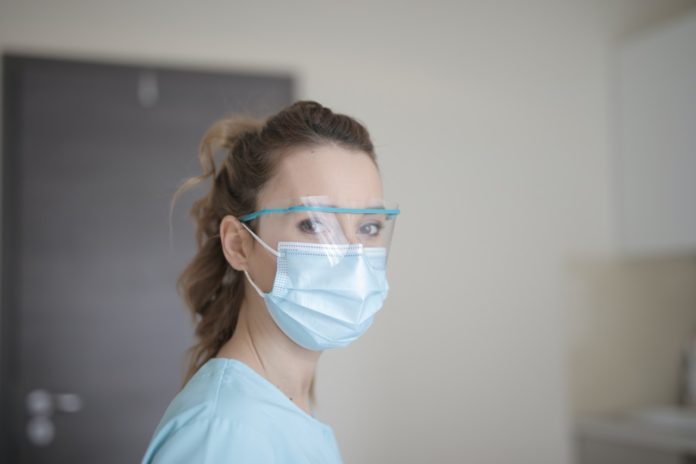
More and more countries are advising their citizens to wear masks in public areas. This includes the country that has been hardest hit by this new strain of the coronavirus – the USA.
But in the Netherlands, the official line is still that wearing a mask adds nothing to the fight against this virus. It could even be counterproductive. A recent article in Nature Medicine does see advantages in covering your mouth and nose. However, the conditions in which these masks should be worn differ.
So as not to become infected with the coronavirus themselves, health care workers need these masks. They use special FFP2 masks in ICUs. These block aerosols too. Patients release these particles during specific treatments. That is according to infection prevention expert, Ellanie de Bruijne. “These droplets will penetrate normal surgical masks.”
Instead, stick to the rules
But for non-care personnel it is of little use to wear a mask, she says. “I don’t want to say they don’t work, but it’s not the most effective measure you can take to prevent infection. If you keep [the 1.5m] distance, wash your hands often and don’t touch your face, you don’t need a mask.”
Wearing a mask can even be detrimental. “If you use it incorrectly, you can infect your mask and contaminate yourself. For example, if you put on the mask without having washed your hands or if you keep touching the mask”.
Wearing masks also creates a form of false security, says De Bruijne. “People get closer to each other because they think they are well-protected. All the while, the masks may not meet the right requirements. People [also] do not use them in the right way. Those people then pose more of a risk than if the people had adhered properly to the [other] rules”.
‘Don’t wear them’
The Dutch government, therefore, advises against wear masks. “The experts tell us it doesn’t contribute anything”, says the Dutch Public Health Minister, Hugo de Jonge, on the Dutch TV show, Nieuwsuur.
The World Health Organisation (WHO) says “there is currently no evidence that wearing a mask (whether medical or other types) by healthy persons in the wider community setting, including can prevent them from infection with … COVID-19. Medical masks should be reserved for health care workers.”
However, they, and other sources, do advise people already infected with the disease to don a face mask. “Research shows that wearing a mouth mask doesn’t necessarily protect you. But a sick person who wears [one] is less likely to infect others if he coughs or sneezes,” said Michael Ryan of the WHO.
All in agreement
All the experts agree – staying home is far better than taking to the streets with a face mask. “Staying home is the best way to reduce your risk of infection and the chance of spreading the virus,” says researcher and epidemiologist, Ben Cowling.
But, says Michael Ryan, for some countries there are “circumstances in which keeping a distance isn’t possible. People don’t have the services you have in other countries. There are situations where wearing mouth masks reduces the rate at which sick people infect others”.
Cowling agrees, “Not everyone who’s infected can stay at home everywhere. Some have to work. For them, it might be better to wear a face mask.”
Translation: Melinda Walraven










